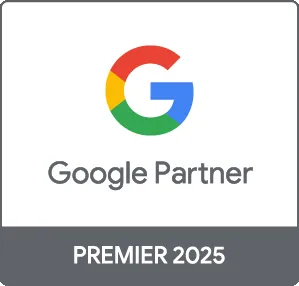Google Ads is a powerful tool for small businesses looking to increase visibility and drive traffic. With the right strategies, you can run effective campaigns that reach your target audience and grow your business. In this guide, we'll cover essential tips for using Google Ads effectively, optimizing your ads, managing your budget, and measuring success. Join us as we explore how small businesses can leverage Google Ads to achieve remarkable growth.
Why Google Ads is Ideal for Small Businesses
Google Ads offers numerous benefits for small business owners:
- Targeted Reach: Reach customers actively searching for your products or services, increasing the likelihood of conversions.
- Cost Control: Set a budget that suits your business, ensuring you only pay when someone clicks on your ad.
- Performance Tracking: Monitor the effectiveness of your campaigns in real-time and optimize them for better results.
1. Setting Up Your Google Ads Account
Begin by creating your Google Ads account. Follow these steps:
- Visit the Google Ads website and sign in with your Google account.
- Choose your advertising goal, whether it’s to get more calls, website visits, or store visits.
- Define your target audience based on location, demographics, and interests.
2. Keyword Research
Keyword research is crucial for ensuring your ads show up in relevant searches. Here’s how to approach it:
- Use tools like Google Keyword Planner to identify high-volume, low-competition keywords related to your business.
- Consider long-tail keywords that capture specific user intent.
3. Crafting Compelling Ad Copy
Your ad copy should grab attention and encourage users to click. Focus on:
- Clear Messaging: Address the user's needs and how your service can meet them.
- Call to Action: Include phrases like “Call now” or “Learn more” to prompt immediate action.
4. Budgeting and Bidding Strategies
Effective budgeting and bidding ensure you get the most out of your investment:
- Set a daily budget based on your overall marketing expenses.
- Decide between manual or automated bidding, depending on your comfort level with managing the process.
5. Measuring Success with Analytics
Regularly review your campaign's performance metrics to understand its effectiveness:
- Track key performance indicators (KPIs) such as click-through rates (CTR), conversion rates, and return on investment (ROI).
- Utilize Google Analytics in conjunction with Google Ads to gain deeper insights into user behavior.
Conclusion
Google Ads is a valuable platform for small businesses looking to enhance their online presence and attract new customers. By focusing on targeted strategies, effective budgeting, and continuous measurement of performance, your business can thrive in a competitive market. At Prebo Digital, we specialize in optimizing Google Ads campaigns for small businesses, helping you achieve your marketing goals and maximize your returns.





